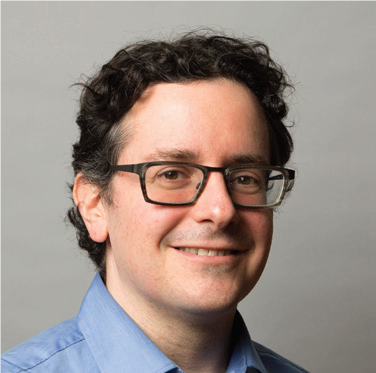 Dr. Jed Meltzer
Dr. Jed Meltzer
Language plays a crucial role in our daily lives. It allows us to communicate and build connections with others, get the information we need, learn new things, navigate our surroundings and even stay safe. So when our language skills are impaired, it can have devastating consequences.
This is a worrying reality for those with aphasia. Aphasia is a language disorder that impacts all forms of verbal communication, including speech, language comprehension, and reading and writing abilities. Among other things, aphasia can affect our ability to name common objects, engage in conversation, understand and use words correctly and follow instructions. It affects around one-third of stroke survivors and can also be present in those with dementia, especially in the form of primary progressive aphasia.
“Aphasia can be very isolating,” says Dr. Jed Meltzer, Baycrest’s Canada Research Chair in Interventional Cognitive Neuroscience and a neurorehabilitation scientist at Baycrest’s Rotman Research Institute (RRI). “It can negatively affect people’s personal relationships, and it often determines whether or not someone can continue working.”
With such potentially debilitating impacts, aphasia can seem like a frightening diagnosis. However, Dr. Meltzer and his team want to help individuals with aphasia recover and live life to the fullest. They are pioneering the use of individualized brain stimulation therapy to treat aphasia in recovering stroke patients. In a recent study, they tested language performance and used magnetoencephalography (MEG) to measure brain waves in 11 stroke survivors with aphasia before and after they underwent brain stimulation therapy.
The scientists found that the participants had abnormal electrical activity in brain regions close to but outside the area destroyed by the stroke. This abnormal activity was mainly a shift to slower brain waves, a pattern they have also observed in individuals with dementia.

They mapped that abnormal activity and targeted it using non-invasive brain stimulation. They found that the stimulation made the activity more normal – that is, faster – and improved language performance in the short term.
Previous research has also demonstrated that brain stimulation can improve language performance in aphasia patients. However, Dr. Meltzer and his team are the first to target each individual’s abnormal brain activity with the stimulation treatment. In contrast, the standard approach in previous studies has been to use the exact same treatment, targeting the same brain areas, on every patient.
“Aphasia patients are highly variable in terms of where their brain damage is and what part of the brain should be stimulated for therapy. By mapping individuals’ brain waves, we are finding ways to target the right area to improve their language performance,” says Dr. Meltzer.
While the participants in this study were stroke survivors, individuals with dementia have similar dysfunctional tissue in their brains, and the scientists are also examining the use of brain stimulation in this group.
Currently, most people who suffer from aphasia undergo speech and language therapy. This helps them improve their ability to communicate by restoring as much of their language as possible, teaching them how to make up for lost language skills and finding other methods of communicating. While most people can make significant progress with this therapy, it is a relatively slow process and few people fully regain their communication abilities. Innovative techniques, such as individualized brain stimulation therapy, bring new hope that aphasia patients may one day recover more quickly and regain more of their language abilities.
In this study, Dr. Meltzer and his team looked at the immediate effects of single stimulation sessions. As a next step, they have received funding from the Heart and Stroke Foundation to conduct a full-scale clinical trial looking at the longer-term impacts of repeated brain stimulation for stroke survivors with aphasia. However, this study has been suspended because of
the restrictions on in-person research participation due to the COVID-19 pandemic. In the meantime, the scientists have pivoted to optimize other aspects of aphasia treatment.
Baycrest research helps improve the way we prevent, diagnose and treat brain disorders like aphasia, improving the experience of aging for us all. If you would like to participate in our research, please visit
www.baycrest.org/participateinresearch to learn more and express your interest.